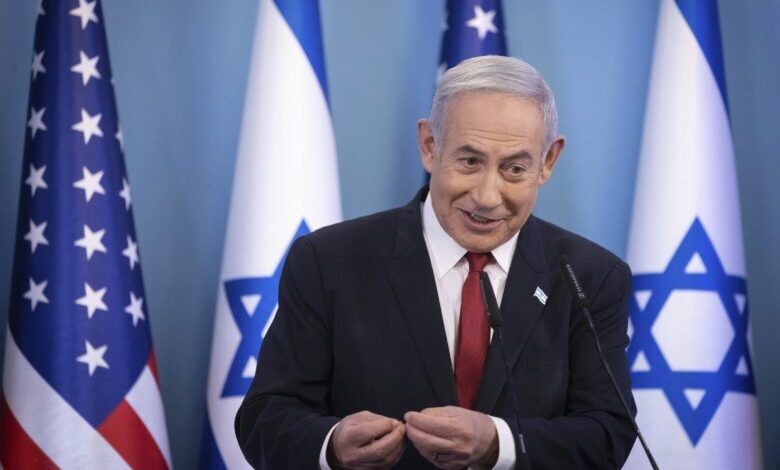Netanyahu Set to Testify in Corruption Trial, Facing Accusations of Bribery and Fraud

The first sitting prime minister of Israel to face a criminal trial Benjamin Netanyahu, is set to testify for the first time in his ongoing corruption case, which resumes Tuesday.
Netanyahu, who has faced multiple delays in his court appearances, will take the witness stand to respond to allegations of bribery, fraud, and breach of public trust in three separate cases.
The trial, which began in May 2020, is expected to last several months, with appeals potentially prolonging the process even further. Netanyahu, who has repeatedly denied any wrongdoing, has previously attempted to delay the proceedings, citing security concerns over ongoing conflicts in Gaza and Lebanon.
At Tuesday’s hearing, the prime minister will respond to the charges and testimonies from former allies, including claims that he and his wife, Sara, accepted more than $260,000 worth of luxury goods from billionaire benefactors, such as cigars, jewelry, and champagne, in exchange for political favors. Among the alleged benefactors are Israeli-born Hollywood producer Arnon Milchan and Australian business magnate James Packer.
In addition to the luxury gifts case, Netanyahu faces accusations in two other instances related to media manipulation. In one, Netanyahu allegedly sought a deal with Arnon Mozes, the publisher of Yedioth Ahronoth, to secure more favorable coverage in exchange for weakening the rival newspaper, Israel Hayom. In the second case, Netanyahu is accused of receiving favorable coverage on the Walla news site, owned by his close friend Shaul Elovitch, in exchange for facilitating a telecom merger that benefited Elovitch’s company.
Netanyahu’s legal team has filed multiple requests for postponements, citing his busy schedule and Israel’s ongoing security issues. However, the court has rejected these petitions, insisting that the trial should proceed in the public interest. Netanyahu has not appeared in court since June 2023, but in a statement Monday, he vowed, “I will speak in court. I am not running away.” He described the accusations as a “relentless witch hunt” and said he had been waiting for eight years to present the truth and defend himself.
The trial has become a point of contention within Israeli politics, particularly as Netanyahu’s coalition government continues to clash with the judiciary. Critics argue that the prime minister’s attempts to weaken the courts are part of a broader strategy to avoid accountability. Some also accuse Netanyahu of prolonging the conflicts in Gaza and Lebanon to deflect attention from his legal troubles.
Yohanan Plesner, president of the Israel Democracy Institute, described the trial as a significant moment in the country’s democratic institutions. He noted that Netanyahu’s position as both prime minister and a criminal defendant places him in a difficult position, especially with the public nature of the trial.
On Monday, a group of ministers from Netanyahu’s coalition sent a letter to Attorney General Gali Baharav-Miara requesting a delay in the trial due to the security situation. Despite these requests, the prosecution has emphasized the need to conclude the case as quickly as possible, insisting that it is in the public’s interest.
Netanyahu’s trial is a historic moment for Israeli democracy, with the prime minister’s legal case directly confronting the country’s judiciary and public institutions. The outcome of the trial could have far-reaching implications, not only for Netanyahu’s political future but also for Israel’s governance and the strength of its democratic systems.





